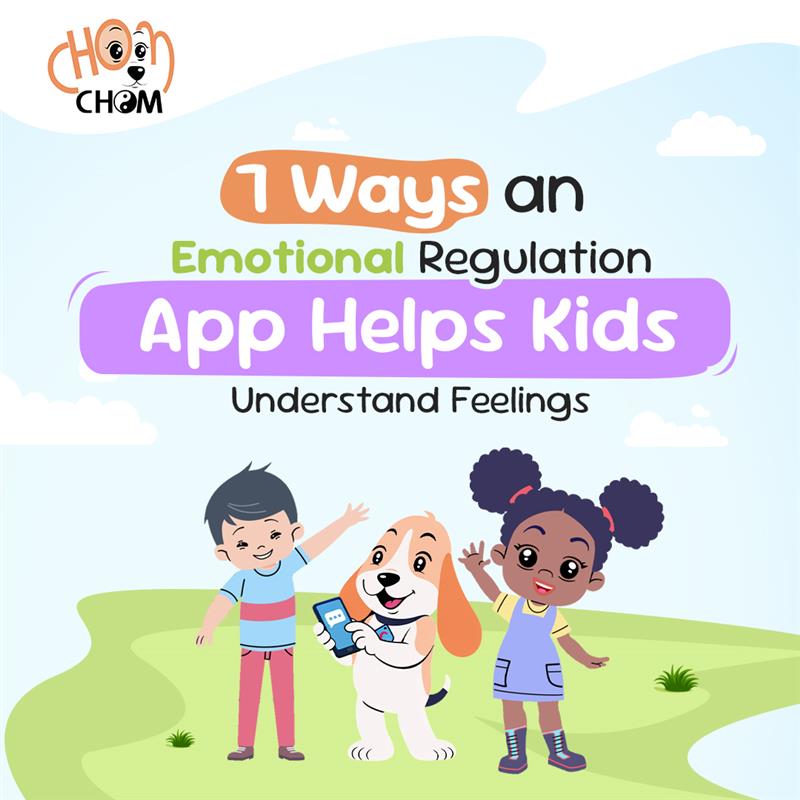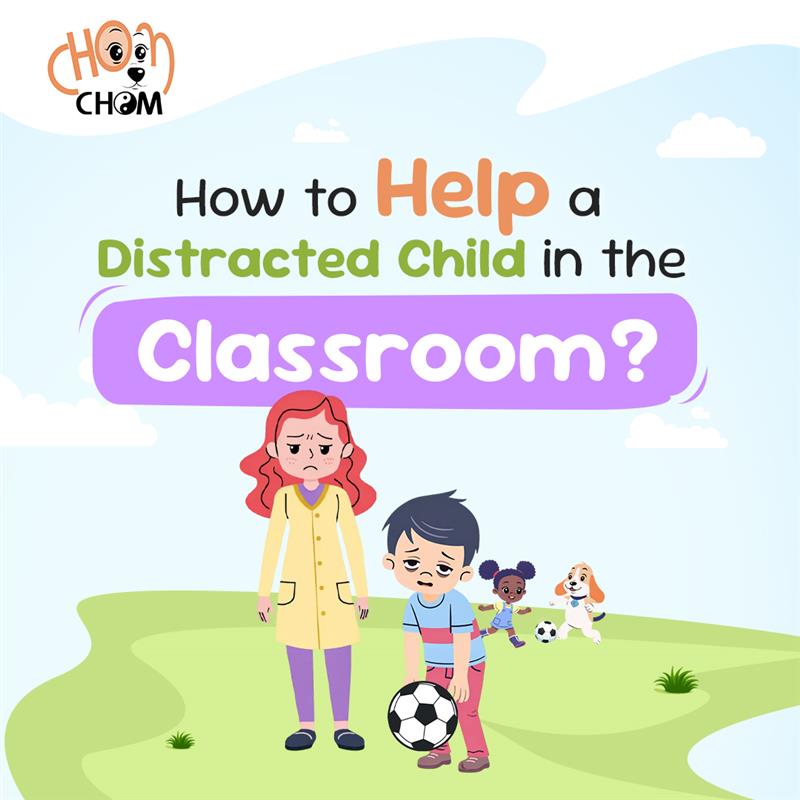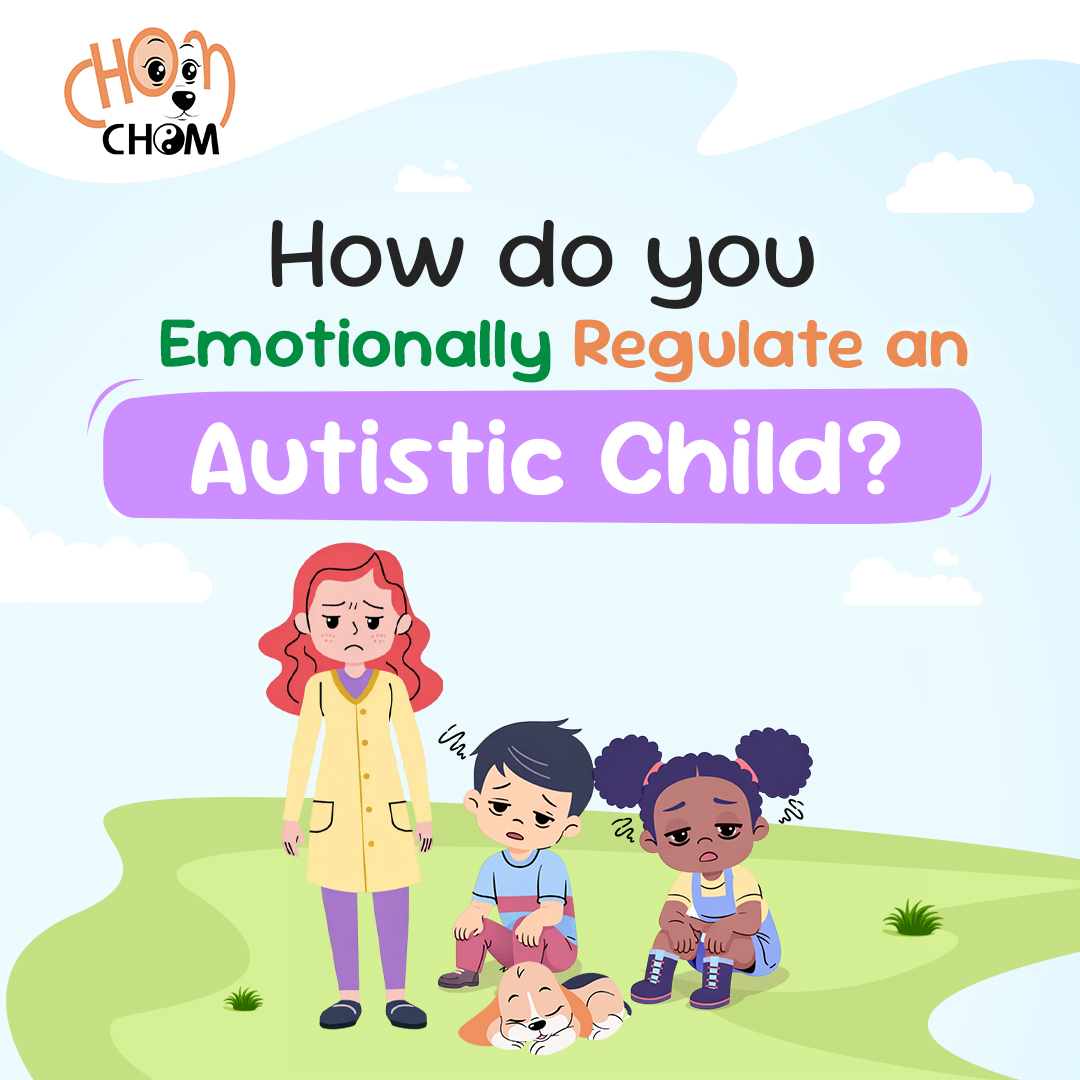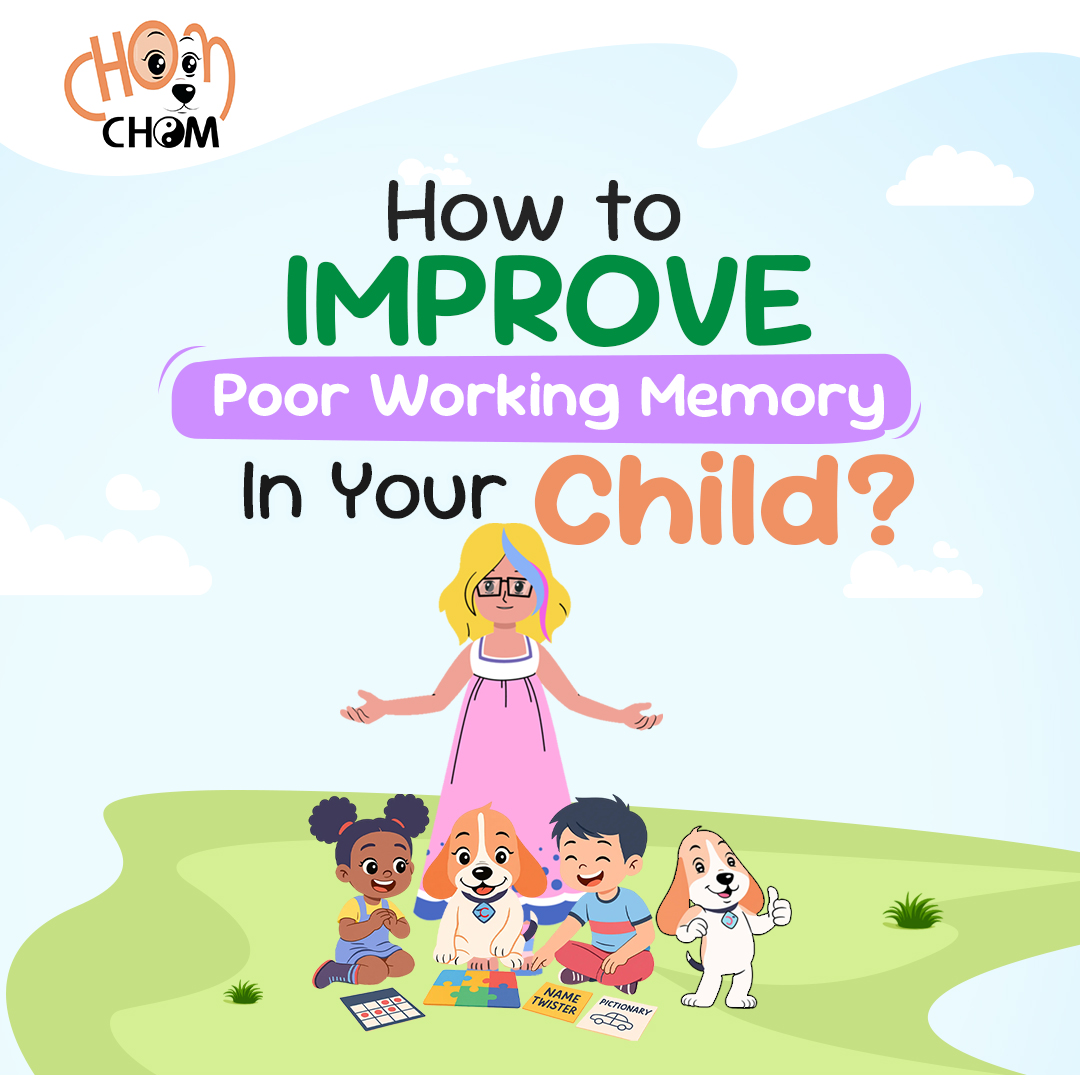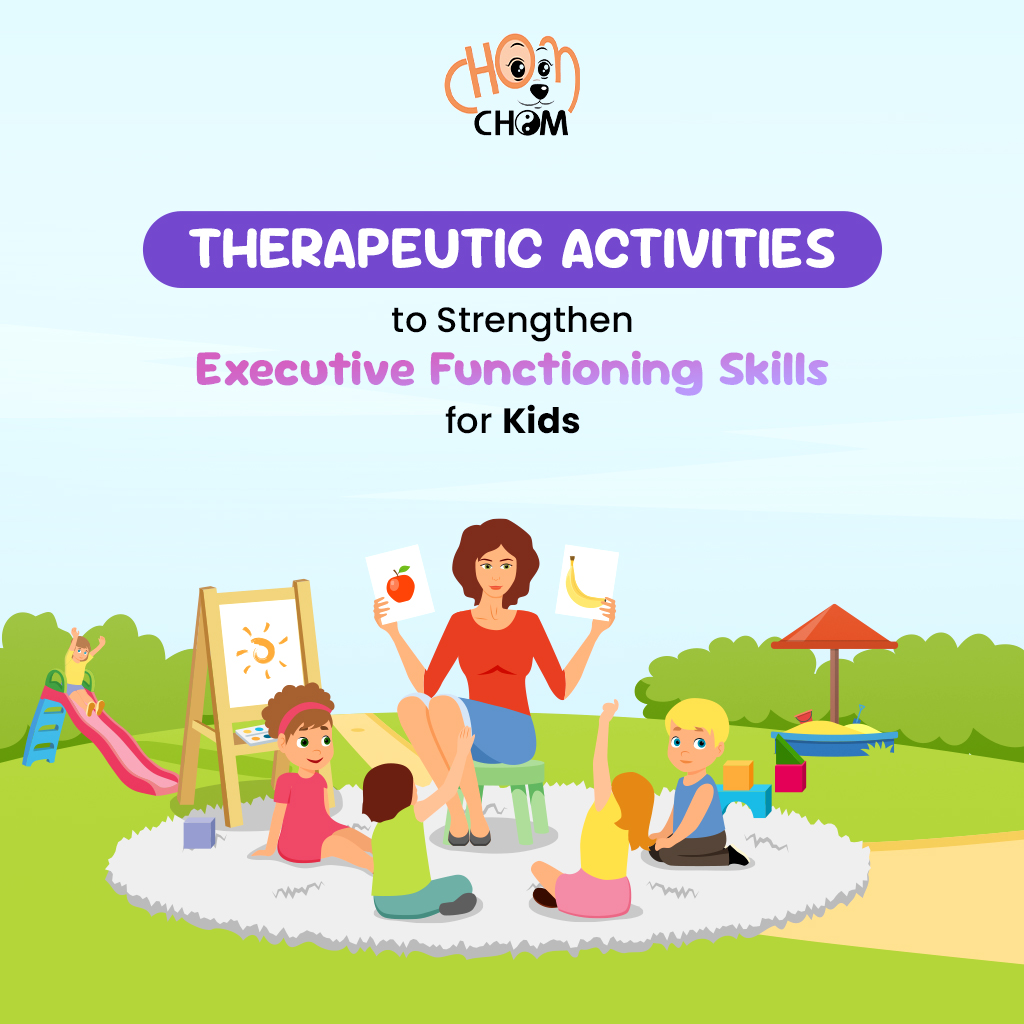
Your child is facing executive functioning difficulties – the statement is not something we come across daily. It is disheartening for a parent to hear this, especially if they are unaware of what it entails.
No two children are born the same. Each is unique, with varied strengths and abilities. While raising a child, it is the parent or the caregiver who can identify their needs.
Kids do not learn to solve problems or identify what is happening as soon as they are born. This skill slowly develops with age and interaction.
Executive functioning skills for kids embody the ability to plan, organize, decide and learn skills. They become capable of identifying what is what, who the people are around them, which object does what and how to use them.
However, in utmost honesty, some children struggle with executive function activities. They struggle with simple activities and get overwhelmed with tasks that require decision-making.
This comprehensive book discusses ways to improve executive functioning. It also explains how therapeutic activities for kids contribute to the improvement and development plan.
What Are Executive Functioning Skills?
Executive functional skills are an expansive term that entails varied brain capabilities. These skills help children play, plan, organize, control emotions and impulses, and follow and remember instructions.
These cognitive abilities ensure these children can regulate through life and navigate beyond emotions. The skills vary manifold –
- Memory Power – The ability to remember information and instruction and utilize the same.
- Cognitive Strength – The flexibility of shifting attention and adapting to varied situations.
- Inhibition – The strength to regulate sudden emotions and avoid distractions that appear.
- Planning & Organization – The capability to set goals, motives and objectives and stay on track.
- Impulse Control – The skills to understand which situation demands which emotion.
- Time Management – The skills to estimate time frames and understand priority.
- Initiation & Decision – The ability to start tasks without procrastination and make decisions when necessary.
Learning about these executive skills and aligning them with children is daunting. However, the ability to complete homework without getting distracted is an executive function. Similarly, finishing a meal and remembering the instructions is also an executive strength.
The ability to navigate through these skills is inherent, and kids master them as they develop. However, several children fail to produce the ideal executive, especially ones with ADHD. They tend to be more dysfunctional and fail at generic daily tasks.
The Benefits of Building Executive Functioning Skills
If and when you identify executive dysfunctionality in your child, the ideal measure is building these skills. You may include multiple things, from executive functioning therapy to flexible thinking activities designed for children.
As a parent, learning how these functional activities and therapy sessions benefit your child is vital. Here are some advantages –
- With executive skills, children can maintain a working memory and make sense of the information provided to them. This becomes an inherent habit with practice, and school and social activities become easy.
- Executive function skills are equivalent to cognitive abilities for kids. They help them adapt to varied environments and move through daily activities.
- With practical skills development, children can manage their focus and emotions and understand how to react in certain situations.
- Effective inhibition control helps children tune out the distractions and focus on play and academia. The executive function activities are designed to promote response inhibition.
- Understanding time is a crucial skill for children. Prioritizing tasks and designing activities around them helps even in later years.
- The routine during therapeutic activities for kids imparts self-regulation techniques and avoids procrastination and task initiation issues.
These are only a few benefits of executive function therapy. Investing in ideal skill-building methods contributes to psychological development in children. With time, you will observe your child excelling in life and seamlessly navigating challenges.
Exploring Therapeutic Interventions for Executive Functioning
The steady lack of executive abilities in children has often led to low self-esteem and unwillingness to perform. Daily activities for kids with adhd are a hassle for these kids, and low confidence is exuded through day-to-day dealings.
However, therapeutic interventions have a positive impact on essential skill-building. A variety of these could be implemented for your child’s mental health and emotional well-being. Enhancing motor skills and sensory details are examples of child development interventions that are part of executive function therapy.
- Board games and puzzles that insist on mastering problem-solving skills, or even playing chess for beginners, can be a good start.
- Games with timers teach the potential of time management. Since they are games, skill development is a fun activity.
- Coordination and color-match games like Color Catch Adventure help alleviate anxiety and improve focus and reflexes.
- Emotional awareness games like Mood Quest help children recognize and differentiate between various emotions.
Executive function development in children depends on three abilities: memory, flexibility and self-control. The more therapeutic interventions are asserted, the better the outcome regarding skills and abilities.
How Does Executive Function Skills Help Children With ADHD?
No child is born with executive functional skills. These abilities develop through the ages until a child reaches 25.
However, some children tend to develop these skills slower than expected. They falter a little regarding attention, focus, ability to understand instruction and even decision-making. The impact is more visible in children with ADHD (Attention Deficit Hyperactivity Disorder), Autism, and those with disabilities and special needs.
Parents and caregivers fail to teach children life skills, so skill-building through games and play is unique. However, there are techniques for implementing therapeutic activities for ADHD kids correctly.
Therapy activities can be employed to develop different executive functioning skills in the following ways –
Working Memory
Memory skills are crucial for holding information in mind and manipulating it. As a child, this becomes necessary for navigating life, academics and daily activities.
You can try ‘What’s Missing’ games, for instance. Arrange a few objects on a tray, have the child observe them, then cover the tray and remove one object. The child then has to identify what’s missing. Gradually increase the number of objects and make it more challenging.
Such therapeutic activities for kids boost memory power and help them sharpen their observation skills and focus.
Sequencing Activities
Asking children to recall and repeat numbers, words, or actions boosts further memory. This could involve telling a short story and then asking them to retell it in order. Parents may also provide instructions for a simple craft and have them follow them in sequence.
Inhibitory Control
Inhibition refers to the ability to stop an automatic response and instead do what is needed. One fun game to elevate inhibition control is the classic Red Light & Green Light .’It helps practice stopping and going on command.
Freeze Dance is another inhibition-boosting game. Children dance to music and freeze when it stops, holding their position until it restarts. This encourages impulse control and sustained attention.
Sorting games with rules is also beneficial. You must provide objects and ask the child to sort them based on a specific rule like color or size. Then, introduce a conflicting rule like sorting by shape or picking only red. The instance requires overriding an initial impulse.
Cognitive Flexibility
It refers to the ability to switch between different tasks or ways of thinking. For instance, category-shifting games or role-playing ones enable cognitive flexibility,
Ask children to name items in one category (say, animals) and then abruptly switch to another (say, blue things). The immediate shift in mindset aids cognitive strength and flexibility.
Similarly, role-playing games encourage children to assume different roles and require them to adapt their behavior and responses based on their characters.
Open-ended gameplay with multiple objects contributes to cognitive strength. Provide a set of objects and encourage children to brainstorm as many different ways to use them as possible. For instance, a blanket could be a cape, a picnic mat, or a tent.
Planning and Organization
The ability to set a goal, create a strategy, and execute it is an organizational skill. It is a crucial executive strength, and children must master it at a young age.
Simple puzzles and building blocks encourage children to think about where pieces go and how to construct something.
You can also ask the child to pack a bag for a specific activity, like a picnic or a sleepover. It prompts them to think about all the necessary items in advance.
Parents and caregivers can also involve children in simple cooking or baking tasks where they follow a recipe. The approach requires sequencing, measuring, and understanding the steps involved.
There are multiple ways for kids to improve and boost executive functioning skills through daily activities. Whether you choose basic therapeutic activities or flexible thinking games, each is unique and beneficial.
Practical Strategies to Support Executive Functioning Through Therapy
Executive functioning skills are the mental processes that allow children to plan, focus attention, and remember instructions. With age, they can juggle multiple tasks successfully and explore better opportunities.
Some children face difficulties in these areas, which impact everything from academic performance to social interactions and daily routines.
Therapy offers many practical strategies, particularly building executive functioning skills, occupational therapy and cognitive behavioral therapy. These support and strengthen vital skills – that are crucial for every child.
Executive Functioning through Therapy Functions like These –
Therapy for executive functioning skills in children often involves a multifaceted approach. Integrating skill-building activities with environmental modifications aids the process.
Here are some detailed practical strategies –
Breaking Down Tasks into Smaller Steps
One of the most fundamental strategies is to segment overwhelming tasks into manageable, bite-sized components. The approach reduces cognitive load and makes the task less daunting.
Therapeutic Application
An occupational therapist might help a child create a visual schedule for their morning routine, breaking the steps down into “get out of bed,” “brush teeth,” “get dressed,” and so on.
For homework, a therapist might help the child identify the first step, complete it, and then move to the next.
The methodology improves planning, organization, and initiation skills by making tasks seem achievable. It also provides a sense of accomplishment with each completed step.
Visual Supports and Schedules
Many children with executive functioning challenges benefit immensely from visual aids. It provides a concrete representation of expectations, routines, and sequences.
Visual schedules (using pictures and words) for daily routines, schoolwork, or even specific activities like getting ready for bed help. Timers (visual or auditory) are also excellent for helping children understand and manage time for tasks.
Schedules enhance working memory, organization, and time management. They also reduce anxiety by making routines predictable and providing a clear roadmap for task completion.
Self-Monitoring and Self-Correction
Assessing one’s performance and making adjustments is crucial for independent functioning. While it takes time as a child, it becomes an impressive characteristic as an adult.
Parents and caregivers can use checklists to assign tasks to children. This encourages children to pause before responding impulsively. Role-playing scenarios where children practice identifying errors and problem-solving can be highly effective.
Self-monitoring strengthens inhibitory control, working memory, and cognitive flexibility. It promotes greater independence and metacognition (thinking about one’s thinking).
Planning and Organization
Helping children establish consistent methods for managing their belongings, schoolwork, and time is vital.
This might involve setting up school bags, color-coding binders for different subjects, or using a consistent planner or calendar. Parents can guide children in creating a system that works for them rather than imposing a rigid one.
The approach addresses planning, organization, and task initiation challenges, reducing clutter and improving efficiency.
Mindfulness and Self-Regulation
Teaching mindfulness can benefit children who struggle with emotional regulation or impulse control.
Parents and caregivers can incorporate breathing exercises, meditation, or guided imagery to help children calm their bodies and minds. They might also use emotional awareness games and teach appropriate coping strategies for strong emotions.
Such practices improve inhibitory control, emotional regulation, and attention by promoting a greater awareness of internal states and providing tools to manage impulses.
Strategy Instruction and Problem-Solving
Rather than just telling a child what to do, therapy teaches them how to approach challenges.
This involves helping children brainstorm multiple solutions to a problem, weigh the pros and cons of each, and select the best course of action.
For example, if a child struggles with a challenging math problem, parents can guide them to break it down, identify knowns and unknowns, and consider different approaches. They might also teach specific strategies for memorization or sustained attention.
Problem-solving enhances cognitive flexibility, planning, and working memory by equipping children with an executive repertoire. They can apply this ability across different situations.
Environmental Modifications and Scaffolding
Child development with therapy extends beyond direct instruction to creating supportive environments.
The approach could mean minimizing distractions in a homework area. You may offer fidget tools for children who need sensory input to focus. Consistent verbal prompts and reminders are also beneficial. As the child’s skills develop, parents can gradually reduce the level of support to encourage independence.
The changes reduce the cognitive load on executive functions. It allows the child to practice skills in a less demanding environment while gradually building internal strategies.
These proven practical strategies significantly support children in developing stronger executive functioning skills. It improves academic performance, social interactions, and confidence in navigating their world.
The Role of Parents and Educators in Supporting Executive Functioning Development
Executive functioning skills are crucial for a child’s success in school and life. These skills include planning, organizing, remembering instructions, managing time, and controlling impulses.
While executive function therapy is vital in directly teaching and strengthening these abilities, parents and educators are on the front lines.
They are crucial partners in a child’s development. Their consistent support and understanding can make a significant difference.
For Parents:
Parents are a child’s first and most influential teachers. Their home environment and daily routines offer countless opportunities to nurture executive functioning skills.
- Establish Predictable Routines: Children thrive on predictability. Consistent daily routines for waking up, meals, homework, and bedtime help children internalize sequences and develop a sense of time management.
Create a visual schedule (pictures or words) for daily tasks and display it in a prominent place. Stick to the routine as much as possible, even on weekends, with some flexibility.
Routines enhance planning, organization, and working memory by creating a predictable structure.
- Breakdown Tasks: Large tasks can feel overwhelming for children with executive functioning challenges. Parents can help by breaking them into smaller, manageable steps.
Instead of saying, “Clean your room,” say, “First, put away your books. Then, put your dirty clothes in the hamper. After that, pick up your toys.”
This approach improves task initiation and planning and reduces feelings of overwhelm.
- Foster Problem-Solving Skills: Instead of always providing solutions, guide your child to think through problems themselves.
If your child can’t find their shoes, ask, “Where did you last see them? What are some places they might be?” If they struggle with homework, ask, “What’s the first step? What do you already know?”
The method develops cognitive flexibility and planning by encouraging independent thought and strategy development.
- Teach Time Management: Helping children understand and manage time is a key executive functioning skill.
Use timers for specific tasks, like 10 minutes for screen time or 15 minutes for homework. Discuss how long activities will take. Involve them in planning family outings or chores and estimating times.
The strategy strengthens time management and planning skills.
- Be a Model: Children learn by observing. Parents who demonstrate good executive functioning skills provide a powerful example.
Talk aloud about your planning, such as, “I need to make a grocery list before I go to the store so I don’t forget anything.” Show them how you organize your belongings or manage your schedule.
Being a model provides a concrete example of executive functioning in action, making it more relatable for children.
Lastly, always acknowledge and praise your child’s effort in using executive functioning skills, even if the outcome isn’t perfect.
Try sentences like “I noticed you thought about where to put your backpack today – great organizing!” or “You worked hard to stick with that challenging puzzle, even when it was tough.”
Praises build self-esteem and motivate continued effort in developing these skills.
For Educators:
Educators spend a significant amount of time with children during crucial developmental years. The classroom environment offers a unique setting to support executive functioning.
- Provide Clear Instructions and Expectations: Ambiguity can be a significant hurdle. Clear, concise instructions are essential.
Give instructions one or two steps at a time, especially for complex tasks. Use visual aids (e.g., written steps on the board, pictures). Check for understanding by asking students to rephrase instructions.
It supports working memory and task initiation.
- Utilize Visual Organizers and Checklists: Help students structure their thinking and manage assignments. Provide graphic organizers for writing assignments, checklists for multi-step projects, or rubrics that outline expectations. Use color coding for different subjects or tasks.
The method enhances organization, planning, and task completion.
- Teach Metacognitive Strategies: Help students become aware of their learning processes and how to regulate them.
Encourage students to “think aloud” when problem-solving. Teach strategies like “stop and check” before submitting work. Ask questions like, “What’s your plan for this task?” or “How will you remember this information?”
Metacognitive practices develop self-monitoring, cognitive flexibility, and independent learning skills.
- Create a Structured and Predictable Classroom: A well-organized classroom environment reduces distractions and provides a sense of security.
Have consistent routines for transitions, independent work time, and group activities. Label materials and designated areas.
Such an environment supports attention and organization and reduces cognitive load.
- Collaborate with Parents: A unified approach yields the best results. Share observations about a child’s executive functioning strengths and challenges. Discuss strategies used at school that can be reinforced at home and vice versa.
Collaboration ensures consistency and reinforces learning across different environments, maximizing the child’s potential for growth.
Parents and educators create a powerful support system strengthening children’s executive functioning skills. The approach leads to greater independence, confidence, and overall success.
Executive Functioning Skills for Children with ChomChom
Nurturing strong executive functioning skills in children is a collaborative journey that extends beyond the therapy room.
Specialized therapeutic activities provide targeted interventions and help build crucial abilities, such as working memory, inhibitory control, and cognitive flexibility.
However, consistent support and informed strategies from parents and educators are equally vital. By understanding the core challenges associated with executive functioning and implementing practical, everyday strategies, we can create an environment where children can thrive.
At ChomChomTech, you can benefit from a holistic approach to empowering children. Our exclusive skill-building app helps them become more independent, organized, and adaptable learners. We boast a variety of skill-building and emotional awareness games.
Designed for parents, schools and child counselors, ChomChom is the child development support you need!


